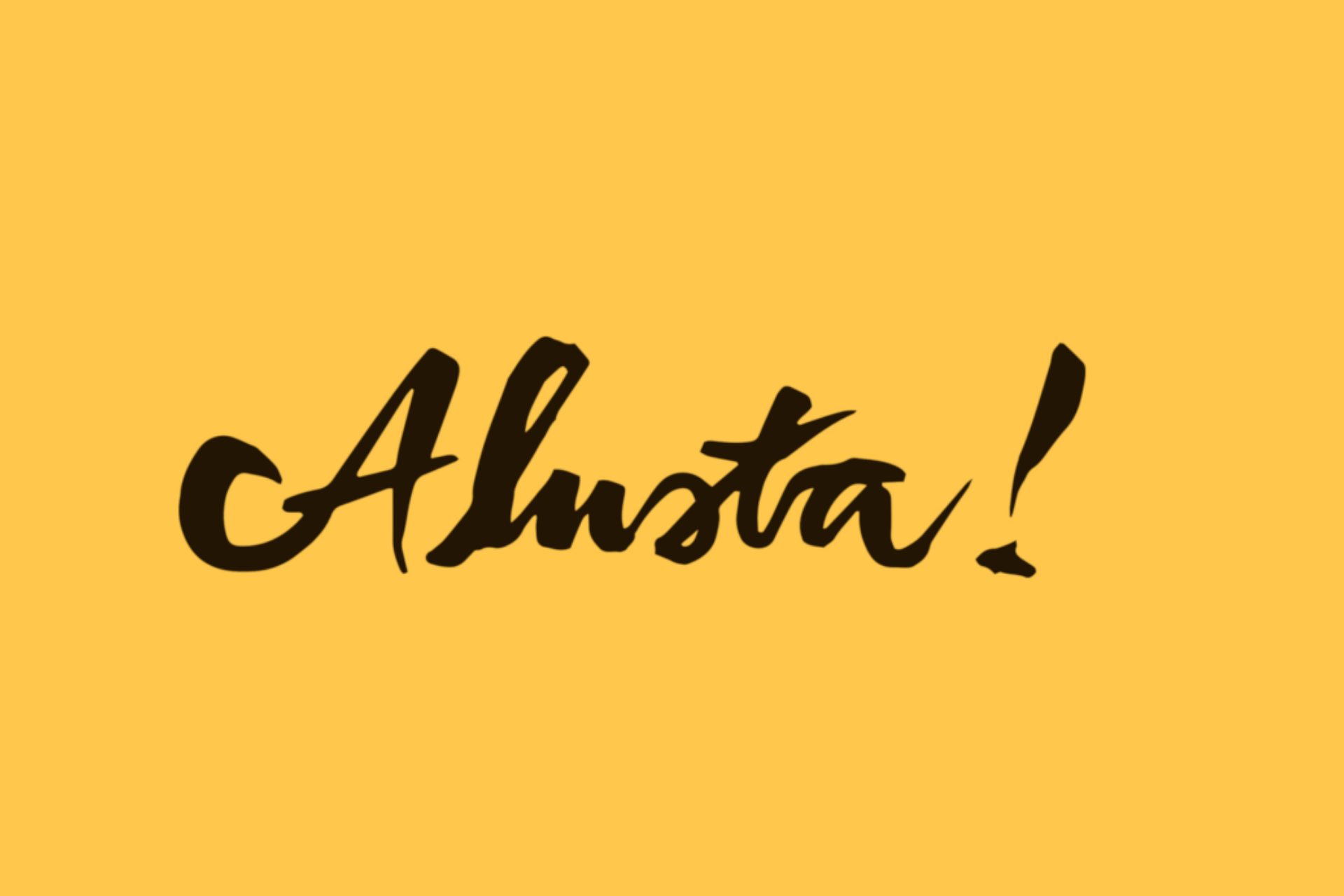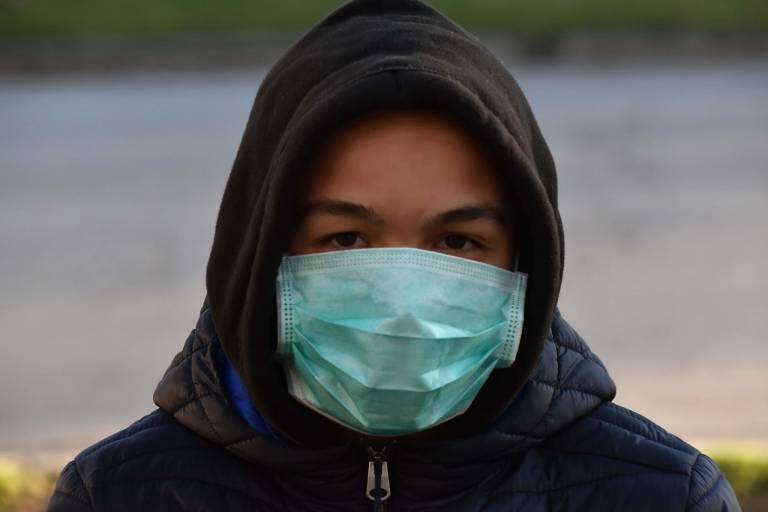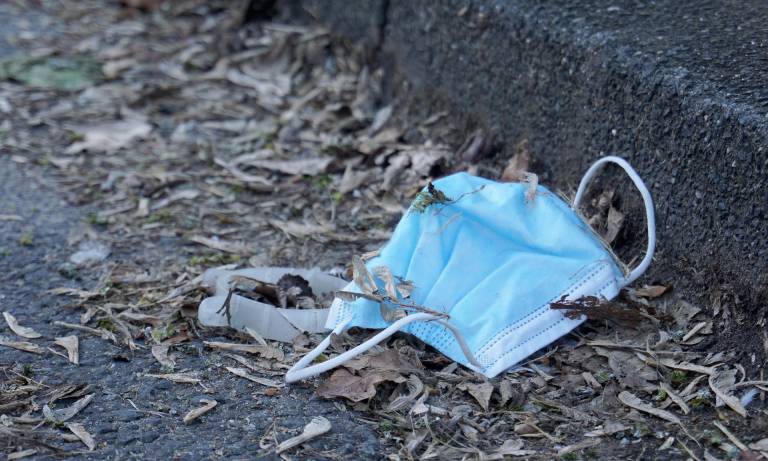During this epidemic, we have new responsibilities, and someday in the future our actions can be evaluated based on how we survived this epidemic.
It is commonly believed that we can only be responsible for the things that we can somehow affect. During an epidemic, many individual actions could have significant effects, as shown in the news reports of what are called superspreaders.
The ongoing Covid-19 pandemic has radically changed everyday human lives. Our everyday lives are full of moral choices and responsibilities, such as parenting, moving in traffic, interacting with co‑workers, friends, and relatives, consuming, charity, political activity or passivity. We usually make these choices without giving them a further thought. In this new situation, we are suddenly forced to think about what actions are responsible and just how many people we should take into consideration in our everyday lives.
In moral philosophy, responsibility refers to, for example, how different actions or inactions and their consequences are connected to actors, such as individuals or organizations. Responsibility can refer to guilt, which places actions and their consequences in the past, or it can also refer to the duty to act in a certain way, which places actions and their consequences in the present or the future.
During this epidemic, we have new responsibilities, and someday in the future our actions can be evaluated based on how we survived this epidemic. These responsibilities include mask-wearing, social distancing, diligent and thorough hand washing, as well as following communications related to vaccinations. In a figurative sense, however, none of us can wash our hands of our moral responsibilities.
Individual, shared, and collective responsibility
Why and how can individuals be responsible for what happens in a global pandemic, or even in the Finnish epidemic? It is commonly believed that we can only be responsible for things that we can somehow affect. During an epidemic, many individual actions could have significant effects, as shown in the news reports of what are called superspreaders. It seems that Covid-19 can even spread through individuals with mild symptoms or with no symptoms at all. One of our responsibilities seems to be that, when possible, we will act as if we were potential infectors.
An individual can affect other individuals in other ways than directly infecting them. If places such as stores or buses have a large number of people in them, even a single person could make it harder for someone belonging to a risk group to keep the required distance from other people. In addition, by acting against the recommended restrictions, we can give others a mental image that these restrictions should not be taken seriously. However, the power of setting a good example for others can be much greater than its direct effects.
One of our responsibilities seems to be that, when possible, we will act as if we were potential infectors.
Individuals also have different roles and ways to influence, along with responsibilities related to them. The lead editor of a widely circulated newspaper must think about their own responsibility differently from ministers, border guards, doctors, or teachers. All five workers have many other responsibilities concerning the epidemic, in addition to how they themselves spread or do not spread the disease.
Along with their official roles, the overall situation and qualities of an individual affect how they take their responsibility. During an epidemic, as a parent of young, lively children who are not at daycare, I do not identify with humorous internet memes that say we can save the world by lying on the couch.
Along with the direct effects of individual actions, we can also discuss shared responsibility. An epidemic cannot be controlled unless enough people act according to the restrictions. Along with acting according to the restrictions, we can have other responsibilities related to our different roles and ways of influencing. We all have a responsibility to take part in the measures that can control the epidemic. This controlling cannot succeed unless enough people take part in it.
Shared responsibility can exist for the entire epidemic, as well as in more local situations. For example, the passengers on a bus have a shared responsibility to make sure that all passengers keep enough distance from each other. In a moral sense, shared responsibility can exist even in those cases where official rules or regulations do not exist yet. Passengers on a bus can take care of distancing, even if the bus company has not regulated it yet, and on a larger scale, citizens can travel less between different regions and stay out of restaurants even before they are legally required to.
Along with individual and shared responsibility, there can also be collective responsibility based on the fact that we belong to collectives that specifically try to control the epidemic together. These responsibilities can be related to citizenship or some smaller collectives, such as cities, schools, workplaces, or some other organizations. These collectives could have the goal of controlling the epidemic, which means that individual members have a responsibility to do their part according to the work distribution of the organization.
In comparison, organizations and working in collectives make it possible for individuals to affect larger entities. This could mean that on our part we can influence how the collective or the organization does all that it can to control the pandemic. For example, people living in apartment buildings could demand that their sauna gets closed for the epidemic and help risk-group neighbors with their groceries, a university researcher could make a motion to move to remote education early on in the epidemic, and a citizen could make a motion to add more resources to health care, in case of future crises.
A dedicated anarchist might think that being a Finnish citizen does not give them any collective responsibility, but other forms of shared, collective, and entirely individual responsibility could still exist for them.
The Covid-19 epidemic creates somewhat of a perfect storm of responsibility. Different types of responsibility are all effective, although in different ways for all individuals. Philosophers have different opinions on, for example, the nature of shared and collective responsibility, but despite these different opinions I believe that we can reach similar results as Prime Minister Sanna Marin, who said that “We are all responsible for this” (in Finnish). A dedicated anarchist might think that being a Finnish citizen does not give them any collective responsibility, but other forms of shared, collective, and entirely individual responsibility could still exist for them.
Pitfalls of everyday thinking and contact budget
As with many other collective problems, it can be difficult to understand personal responsibilities and the necessary measures needed in epidemics. Nelli Hankonen, researcher of social psychology, lists social and psychological mechanisms that influence people and make it more difficult for them to act rationally in the corona epidemic (in Finnish). Similar mechanisms have been observed in the ways that people are concerned with, for example, climate change.
In terms of moral agency, we are in a difficult situation, at least because of the fact that many of the measures needed in this state of emergency go against our everyday morals and good manners. Suddenly, we are not allowed to shake hands, rush to hug a friend when we are glad meet them on the street, let grandparents meet their grandchildren, let children play with their groups of friends, and so on. Under normal circumstances, these things would be considered polite and morally correct.
While it is obvious to act in a certain way in our everyday lives, we are now faced with new kinds of moral dilemmas. Is the situation so bad that it is justified to cause sadness in children and even worse psychical damage if this situation is prolonged by preventing them from contacting their friends and dear relatives?
While it is obvious to act in a certain way in our everyday lives, we are now faced with new kinds of moral dilemmas. Is the situation so bad that it is justified to cause sadness in children and even worse psychical damage if this situation is prolonged by preventing them from contacting their friends and dear relatives? I believe that it is, based on what we currently know about the ongoing epidemic. However, it is difficult for individuals to make decisions where they must choose between consequences that are immediately visible and consequences that are uncertain, but possibly much worse.
The situation becomes easier if we are given clearly defined rules from above, but even the largest collection of rules cannot predict all possible situations. Individuals might always have to face difficult choices. This leads us into another problem. In our everyday lives we have good reasons to be critical of the regulations and the information that the government gives us. Because of this reason, it is important that individuals have information about the overall situation, and that they understand the reasons behind the solutions that the government creates to control the epidemic. For this to happen, individuals have to actively look for information, spread it responsibly, and officials have to act as openly as possible during this situation.
Common sense can also mislead us on how we compare our own actions with those of others. If I see a large group of families on a playground, I might normally think that it likely is safe and acceptable to gather on a playground. I might also think that it is unfair, if I am not allowed to go on the playground with my family. In terms of controlling the epidemic, however, it is essential that contacts with other people are limited as much as possible. This means that existing contacts, for both me and other people, are a reason to reduce contacts with others, not increase them.
The concept of carbon budget is used for controlling climate change. During an epidemic, we can think of having a shared contact budget. To successfully control the epidemic in a situation where extensive testing cannot be done for one reason or another, we will have to reduce all of our contacts. The contact budget means having a limited number of contacts, so that the number of infections remains somewhat manageable for health care and the protection of risk groups. Of course, it is essential that our shared contact budget is used for activities that are critical for our society and obligatory for individuals.
Individual, society and responsibility for the epidemic
Ideological factors can also make it more difficult to understand the responsibility for the epidemic. Many social scientists and philosophers have expressed that in neoliberal thinking, individual responsibility is only seen as applying to the individual themselves. A neoliberal individual is responsible only for their own wellbeing. Individual relations with other people and nature, as well dependence on them, start to disappear.
An individualistic ideology such as this can make us only think about our own immediate risks for the disease. We will not think that we might be symptomless carriers, or that our actions can partially affect how health care and other infrastructures critical for society function and how them functioning will affect us and other people. However, this epidemic crisis makes it visible how we are dependent on other people, the infrastructure of our society, and of course those who are maintaining it (often with a small salary and poor collective agreements).
The more the government regulates our activities during a state of emergency, the less individuals must think about their own responsibilities, in principle. Moral responsibility is replaced with juridical responsibility.
The more the government regulates our activities during a state of emergency, the less individuals must think about their own responsibilities, in principle. Moral responsibility is replaced with juridical responsibility. The epidemic responsibilities of individuals should still be analyzed, even when the government acts in a comprehensive, correct and just way. Difficult situations might still occur, since rules cannot be created for all situations. In addition, we do not know when the next epidemic will hit us and what it will be like, but perhaps we can individually prepare for it by thinking about our own responsibilities – at least after the worst is over and we have a chance for hindsight.
Examining the complexities of individual responsibility is relevant from a political viewpoint. For example, how can we prepare for crises in a way that individuals will not have to make excessive moral choices? Can society make it possible, for example, for small companies and cultural workers to take breaks flexibly without excessive financial consequences?
Controlling epidemics is similar to the other tricky problems of our time, such as climate change and the loss biodiversity, however with different timespans. Along with this, these problems can cause various new, faster crises, potentially even new pandemics. Examining the responsibility for the epidemic can also teach us environmental responsibility. However, this examination will demand sensitivity to the characteristics of different phenomena.
As with the climatic or the environmental crisis, the epidemic also crosses different responsibilities. We must think about the direct consequences of our actions, how we can solve problems together with other people, and what communities and societal structures we belong to. The role of our conscious responsibility also increases when we must make difficult decisions when we are unsure and do not have enough information. Where the epidemic makes us act against our everyday morals, good manners, and habits, an environmental crisis also questions many of the things that we take for granted.
The homepage of Lauri Lahikainen.
The homepage of ORSI: Towards Eco-welfare State – project.
- CORONAEPIDEMIC (in Finnish)
Translation by Niko Randell. The translator is a Master’s-level student of Multilingual Communication and Translation Studies at Tampere University. The article was originally published in Finnish in March 2020.






